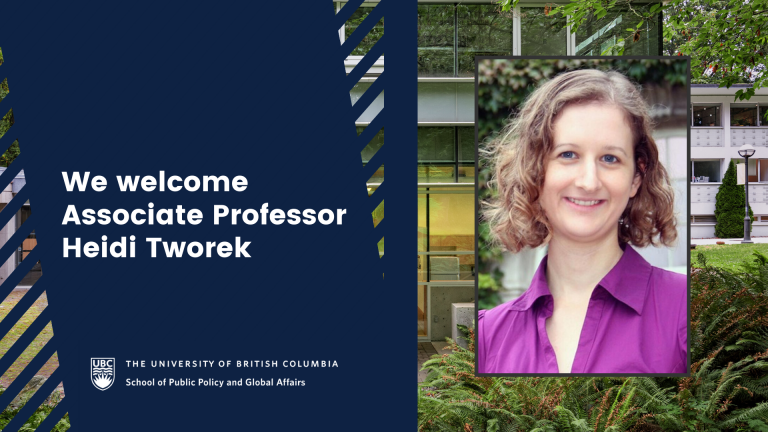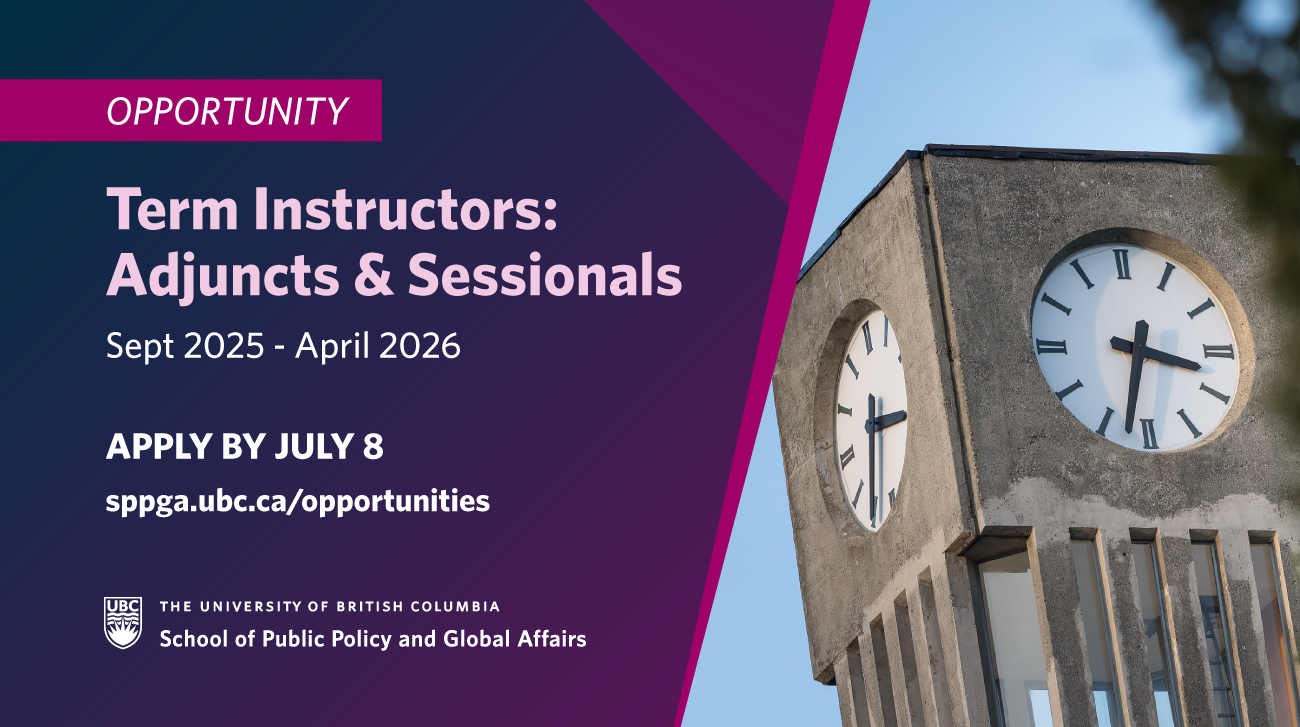

The UBC School of Public Policy and Global Affairs (SPPGA) welcomes Dr. Heidi Tworek as a joint appointment with the UBC Department of History. Dr. Tworek is Associate Professor of History and Public Policy. Her research brings a historical sensibility to policy discussions, particularly around communications and international organizations. She has briefed or advised officials and policymakers from multiple European and North American governments on media, democracy, and the digital economy. Learn more about her by visiting her SPPGA profile.
We spoke to Professor Tworek to learn more about her work and her engagement with MPPGA students and the school.
You’re an expert on media, democracy, and the digital economy. What drives your work?
I’m trained as a historian, particularly of news and communications. When the Arab Spring happened, it showed how newer technologies such as social media could be used to empower citizens, but it also showed the disconnect between the history of communications and the takes in the policy world. This disconnect got me interested in combining history and policy.
I’m interested in applying historical questions to examine contemporary problems, particularly around online platforms and content. Here, history has become ever more present, such as rise in hate speech (for example, the return of Nazi terminology by far-right groups on the Internet). How can we bring an interdisciplinary perspective of history to bear on policy, particularly around the Internet? There’s an assumption that much happening on the Internet is new. But when you look at history, we can see that many problems around the Internet are structural and that means different types of policy interventions.
What are you working on currently?
Health communications! I had been looking at the history of health communications for a few years and this work has come to the forefront with the pandemic.
My current project, working with several students including MPPGA students, is thinking about how to do productive health communications in democracies. We are comparing countries around the world to see how they have communicated around COVID-19 and how they can prepare for a second wave. We’re looking at everything from communications structures to inclusion, for example, do they have communications translated in different languages? Communications is a medical intervention: it helps with compliance, which in turn could save lives.
What you’re most excited about in terms of joining SPPGA?
Teaching in the MPPGA program. I’ve previously taught the Internet & Global Affairs course and really benefited from the different perspectives shared by students from around the world. It really was a two-way exchange. It’s exciting to teach students the practical skills of policy, so that graduates can say that they’ve had experiences like crafting a testimony or co-writing a policy report with other team members. Graduates can bring these practical examples into an interview with future employers to demonstrate their potential for a career in policymaking.
What do you think students studying public policy and global affairs should know in regards to media and the digital economy?
SPPGA is an exciting place because of its interdisciplinarity. Students can learn about a whole range of areas. They can gain flexibility – the kind that is required of many policy professionals who often have to respond to unexpected crises. Who would have dreamed six months ago that they would be working on a health crisis? But now policymakers everywhere have learned to enact change at a pace many could not have imagined a few months ago.


